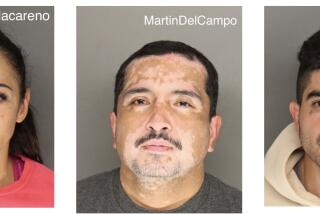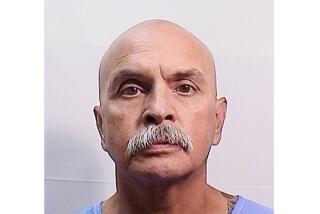Businessman’s Hanging Adds to IBM Scandal’s Mystery
- Share via
BUENOS AIRES — Argentina’s IBM scandal now has the one thing it lacked: a corpse.
The case centers on charges that IBM executives paid high-ranking government officials $21 million in bribes to secure a record $250-million computer contract with state-owned Banco Nacion, Argentina’s biggest bank.
The past two years have featured the discovery of clandestine deposits in overseas accounts, an extradition demand for U.S.-based IBM executives, startling confessions by disgraced bankers and feuds among political figures under suspicion.
This week the plot turned tragic. Businessman Marcelo Cattaneo, 41, was found hanged with a nylon noose in a riverfront shed. Cattaneo and his estranged brother, Juan Carlos, a former close aide to the president’s chief of staff, were indicted in 1996 on charges that their computer company was the conduit for the million-dollar bribes.
Authorities suspect that Marcelo Cattaneo hanged himself. However, many Argentines have doubts. If proved to be a suicide, this would be the third such mysterious death in a web of scandals whose strands are leading higher as President Carlos Menem’s administration enters its final year.
“The series of questionable deaths, which creates fear among the citizens and increases suspicions of Mafia-style networks, obliges those in charge of the justice system to make every effort to clear up the shadows surrounding [Cattaneo’s] death,” declared La Nacion newspaper in an editorial this week.
Marcelo Cattaneo’s family sees problems in the official version of his death, according to a source close to the family. Although the victim remained under investigation, an appellate court recently dismissed a charge against him, and investigators believe that his brother played a bigger role in the conspiracy.
Marcelo Cattaneo, a devoted father of two, did not seem troubled before the four-day disappearance that preceded his death, the source said. He was found wearing a jogging suit and shoes that did not belong to him. Physical evidence reportedly suggests that his car was moved after he died.
A group of congress members, led by presidential candidate Domingo Cavallo, the former economy minister who oversaw the bank at the time of the contract, believes that someone killed Cattaneo and disguised the murder as suicide. The potential motives: to prevent him from telling what he knew or to send a message to other suspects to stay quiet about the involvement of political heavyweights.
Neither Cavallo nor his bitter rival, Alberto Kohan, the presidential chief of staff, is a suspect. However, both have been questioned because they have former allies and subordinates among about 30 indicted suspects.
Two former bank directors have admitted to accepting bribes of up to $3 million offered by Marcelo Cattaneo, whose company was a subcontractor for the bank. The investigating magistrate, Adolfo Bagnasco, is tracking the rest of at least $21 million funneled to banks here and in the United States, Switzerland and Uruguay to see who else received payoffs.
The contract, which was allegedly overvalued and designed to conceal bribes, has since been canceled. IBM conducted an internal review and said it found no criminal wrongdoing on the part of its employees.
Bagnasco withheld comment about the circumstances of Cattaneo’s death because another judge is conducting that investigation. However, he said Cattaneo showed no signs of distress during testimony three weeks ago.
“These are not the kind of people who generally commit violent acts,” the judge said of the suspects in the IBM case. “But you never know.”
The case also has advanced on a complex U.S. legal front. Bagnasco recently filed a request for extradition of two U.S.-based IBM officials who oversaw the negotiation of the Banco Nacion deal. But U.S. law requires that charges be filed against a suspect as a prelude to extradition. Bagnasco said he cannot make a decision on filing charges until he has questioned the officials.
“This was an important contract,” the judge said. “It required the authorization and control of the headquarters in New York. . . . There are reports that these people were continuously informed about the progress of the negotiations.”
More to Read
Sign up for Essential California
The most important California stories and recommendations in your inbox every morning.
You may occasionally receive promotional content from the Los Angeles Times.













